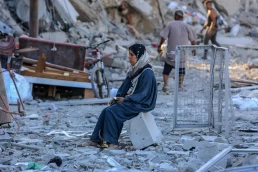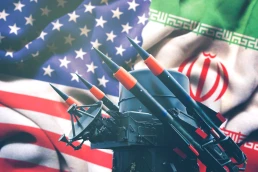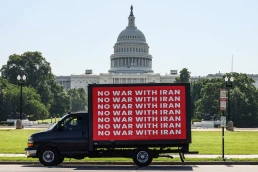Journalist Abubaker Abed never wanted to leave his homeland. He describes the excruciating decisions he was forced to make.
By Abubaker Abed, Drop Site
The night before I traveled it was bleak and cold. I didn’t sleep. Explosions and bombs lit up the dark sky. Apache helicopters hovered low nearby and opened continuous fire. My mother was asleep beside me, staying as close as possible after I begrudgingly decided to leave Gaza for the first time in my life. Before coming to a decision, I had long and painful discussions with her and other family members and friends.
It was an impossible choice, the most difficult one I have ever had to make—to leave home at the height of the genocide. It was April 15th. I was to travel the next morning.
I was totally against leaving until my mother told me, “If you stay, you’ll harm your family because they will bomb you with us and your brothers will be hurt. You should leave.” I never imagined hearing such words from my mother. I was devastated and broke down into tears. The thought that I would pose a danger to my family filled me with the deepest sorrow, pain, and no small degree of remorse. It was the most difficult moment of my life.

I had been forced to make this decision, and it felt completely wrong. My heart raced and throbbed with pain. The night slipped into a kind of void. I kept track of every hour, every minute, every second. I was aware these might be my final moments in Gaza, ever. As the morning light first began to lift the darkness, and the dawn call to prayer rang out, two enormous explosions echoed across the room. It was as though everything froze. My mind could not comprehend what was going on.
I took a shower and packed. This was not difficult, because we were only allowed to take one small bag containing little more than a single change of clothes, a toothbrush, a mobile phone, and a charging cable. Those were the conditions set by Israel. I then performed my morning Fajr prayers. I had never left Gaza before, and it felt unsettling, surreal. I was behaving mechanically, almost like a robot.
My mother’s eyes welled with tears and she began to weep. I told her I wouldn’t get on the bus if she kept crying. “I am leaving upon your demand,” I said. Choking with anguish, I whispered in her ear, “Please let it be a great moment, not a sad one, and believe that we will meet soon, inshallah.”
Recent Posts
Oman’s Foreign Minister Said US-Iran Deal Was ‘Within Our Reach.’ Then Trump Started Bombing
February 28, 2026
Take Action Now “The Omani FM decided to go public,” suggested one observer, “so that the American people knew that peace was within reach when Trump…
A War With Iran Would Not Be a One-Off Event But a Disastrous Ongoing Rupture
February 26, 2026
Take Action Now If Congress cedes its power to stop a war with Iran, it will fully erode any lingering promise of democratic restraint.By Hanieh…
New Addition to List of Nuclear Near Catastrophes
February 25, 2026
Take Action Now Debris flew for great distances — many times the distance of 270 meters to a nuclear reactor and nuclear storage facility.By David…
Gavin Newsom’s last budget belies his ‘California for All’ pledge
February 24, 2026
Take Action Now Yet, even as the state is poised to lose billions in federal funding, and millions of Californians are losing access to health care…




